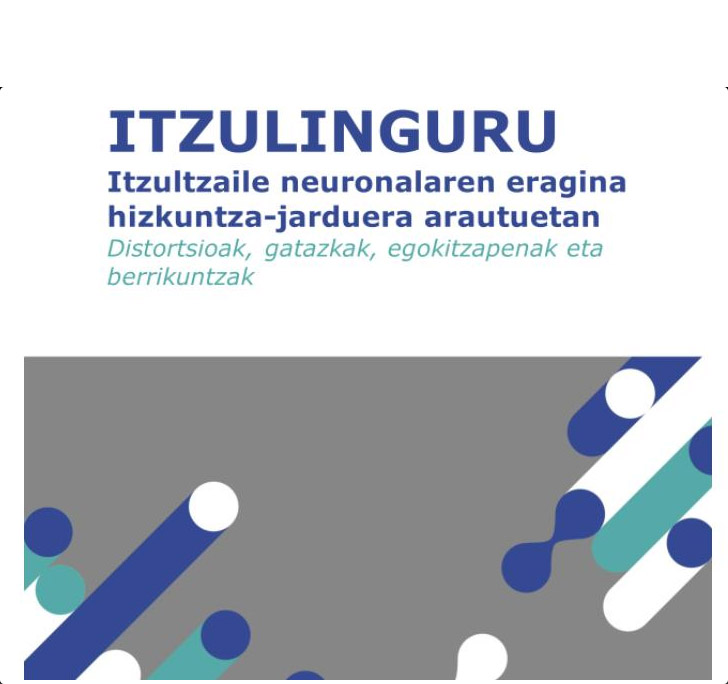From the promise to speak in Basque to the own elaboration
- Not applicable. The mere fact of saying “do it in Basque!” to schoolchildren does not bear fruit. In search of formulas to influence motivation, knowing that other recipes have to be created, interesting experiences are being developed in some centers. Eta kitto! At the seminar Transmission of the Basque Country organized by the Euskara association, three initiatives from Eibar and Elgoibar were announced. These initiatives have served to motivate students, teachers and parents.

In the corridors of the San Andrés de Eibar School there is more Basque listening than at the beginning of the course. That is what Juani Iriondo, a professor in the area, says. In November 2015, they began working with the methodology of the creators of the Aldahitz study. This research was designed by Pello Jauregi and Pablo Suberbiola to influence the linguistic habits of the working world. Last year, Eta Kitto! Based on the idea that Aldahitzen was released at a seminar organized by the Basque Association, they applied to the center the experience that served for the work centers.
As the word says, Euslee is in charge of maintaining the Basque. Elementary students from 3 to 6 are participating in the project, and Iriondo has explained that they have been very motivated from the beginning: “One of the bases of the research is that participation has to be voluntary and when we proposed it to the students, they all wanted to participate.” Every week, five people in the class take over the role of a sustainer and their peers accept it.
When proposing to the students, they proposed the initiative as a study: “We told them that some don’t have the opportunity to speak in Basque outside school, and that practitioners will actively help them.” After all, the goal is to create more opportunities to speak in Basque. The professor at Colegio San Andrés explained that students feel influential, which makes the motivation of students greatly increased. Being an Basque is an honor: “They are very important people, we have given them prestige; they know that it is not an easy job, that no one can be a good sustainer.” The teachers are “bearers”, the students are encouraged and accompanied.
Experience has a research character and that also influences motivation. At the end of the week, the students fill out some files with simple questions. They ask their peers: How did you talk this week, and your peers? ‘How did you talk to the Basque people this week?’ They have to answer on a scale – all in Basque, most in Basque, both in the same way, most in Spanish, almost all in Spanish. With the answers Juani Iriondo makes graphs: “You have seen that there is also a topic to investigate the linguistic habits, and that the decision that the practitioners make influences the use of Euskera throughout the class.”
Brackets usually have no identifying signs: “Everyone is held responsible, and we didn’t want anyone to hold accounts. Who is Eusle knows what it is and that is enough”. Gradually, all the students have gone from being Basque, and each week photos of them have been added in a table. A class has worked especially well in these jobs, and Iriondo took his peers a group photo. This photograph was a confession for that room. Students are thrown at each other and, as Iriondo underlined, the idea of speaking in Basque has been erased: “This experience has been a joyful experience for children, it’s not a burden.” You've also heard parents that their children are at ease. “We haven’t invented anything,” says the professor: “We have done nothing but implement the Aldahitz in our country, and yes, it has worked.”
Parents pupils
Elizabeth Logan is teaching Euskera to a group of parents at Arraten Andra Mari School in Eibar, and she announced her experience at the Eta Kitto seminar! They started classes in December, and some parents already do quite well in Basque. One mother gave the teachers the idea at the beginning of the course. He saw it difficult to sign up in Euskaltegi, with accounts and schedules, and said he would be willing to learn Euskera in the school hours of children. They commented on it in the cloister, and Elizabeth Logan offered to teach. She is working part-time and took on the challenge of teaching outside working hours, and she was very happy.
A group of fifteen fathers and mothers was convened. “The goal is for parents to have a nice relationship in Basque with boys and girls,” explained Logan. Far from the tables of grammar and verbs, they learn Basque to use it on a daily basis. Many of the group have started from scratch, “when we started asking them a question, “What would you say to your son in Basque?”, that has been the starting point.
In Lemoa's words, the atmosphere in Basque schools is very nice. Since not all parents have the same level, they do cooperative learning, collaborate and team work: “There are people who ask for work at home and are very hardworking; they have also done a study, at the request of their parents.” As he reported, a father notes what he learned at home with phrases such as “Collect toys – Collect toys”.
Children are grateful for the efforts of their parents and Elizabeth Logan explains that they like their parents to learn Basque. “They say that when they take holidays themselves they will teach the Basque parents.” Lemona sees children happy.
Elgoibar at ikastola, punching parents
Members of ikastola Elgoibar also participated in the Eibar seminar. The parents of ikastola Deñe Zabalo announced the Bizia project. The Basque group of fathers and mothers started in late 2014 with the motto Bizia, and its main objective is to influence fathers and mothers more than children and adolescents.
In June 2015, the group was presented at the ikastola festival, with an awareness-raising initiative. They made the game of compromises. Through a dynamic with stickers, the parents were encouraged to commit in favor of the Basque Country. At ikastola Elgoibar there are 629 families, and that day they managed to add 682 compromises.
More than what parents say, what influences the linguistic habits of children is the activity of parents. In this sense, the members of the Basque group want the parents of the ikastola to take charge of this responsibility. Posters with awareness-raising phrases have been placed at different points in the ikastola, and they have also attended the meetings of principle of course to inform about the objectives of the group. Among the challenges from now on, Deñe Zabalo mentioned the implementation of motivational actions for parents and the reminder of the commitments made by parents in all activities carried out in the ikastola.
Gukak “Bilbo erdalduntzen duen makina” ikusaraziko du kanpainaren bidez. 24 orduz martxan dagoen makina salatuko dute, eta berori “elikatu eta olioztatzen dutenek” ardurak hartzea eskatuko dute. Euskararen aldeko mekanismoak aktibatzea aldarrikatuko dute.
Plazara, AEK, Uda Leku, Dindaia eta Ebete antolakundeak Baionan elkartu dira Famili'on egonaldi ibiltariaren lehen edizioa aurkezteko. Hizkuntza mailaren arabera eskaintza bat edo beste egongo da eta haur zein gurasoentzat izango da udaberrian.
Hamahiru ZirHika kide batu dira hitanoaren erabilera aldarrikatzeko eta antolakundearen ekintzen berri emateko. Azalpenak Badihardugu elkarteko Idoia Etxeberria eta Galtzaundiko Uxoa Elustondok egin dituzte. Horiei, Andoni Egaña eta Amaia Agirre bertsolariak eta... [+]
Administrazio Epaitegiak arrazoia eman dio EH Bilduk Lizarrako plantilla organikoaren hizkutnz profilen aurka jarritako helegiteari.
Ilbeltzeko igande goiz batez jo dugu Baztanera. Eguzkiak oraindik ez du Lekarozko plaza argitu; bertan elkartu gara Garbiñe Elizegi Narbarte, Itziar Torres Letona eta Ernesto Prat Urzainkirekin. Itzaletan hotz egiten du eta umorez goxatu dugu lehen agurra, hogei urtean... [+]
Hizkuntzarako ere gurasoak haurrentzako eredu direla kontuan hartuta, euskararen erabilera eta irakaskuntzari buruz sentsibilizatzeko helburua duen hamabostaldia antolatu dute Hendaia, Urruña, Donibane Lohizune eta Ziburuko herriek. Martxoaren 15etik 30era guraso... [+]







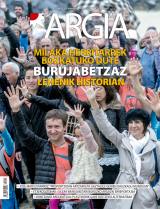

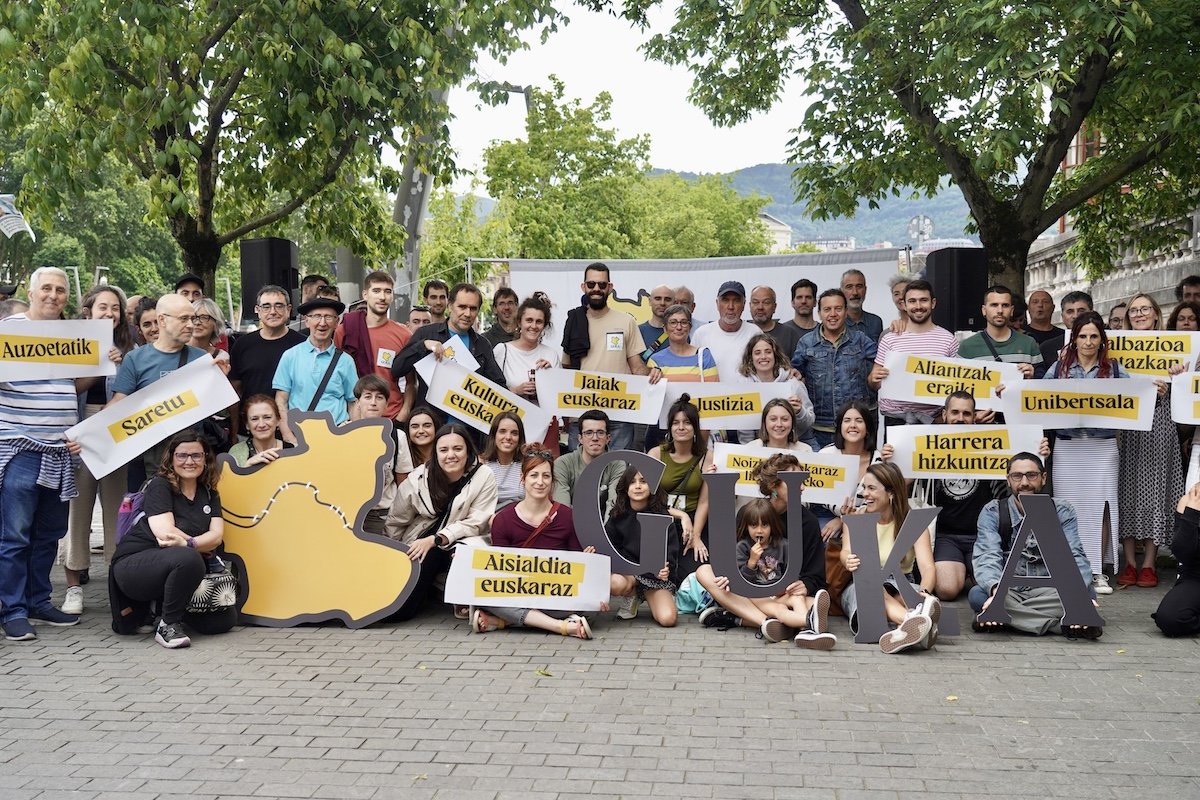



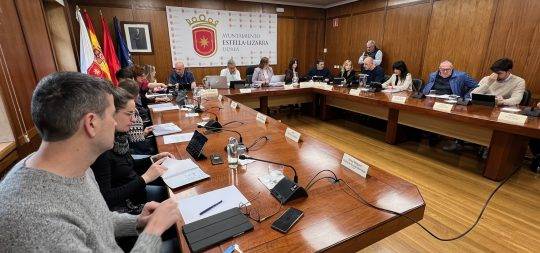
.jpg)
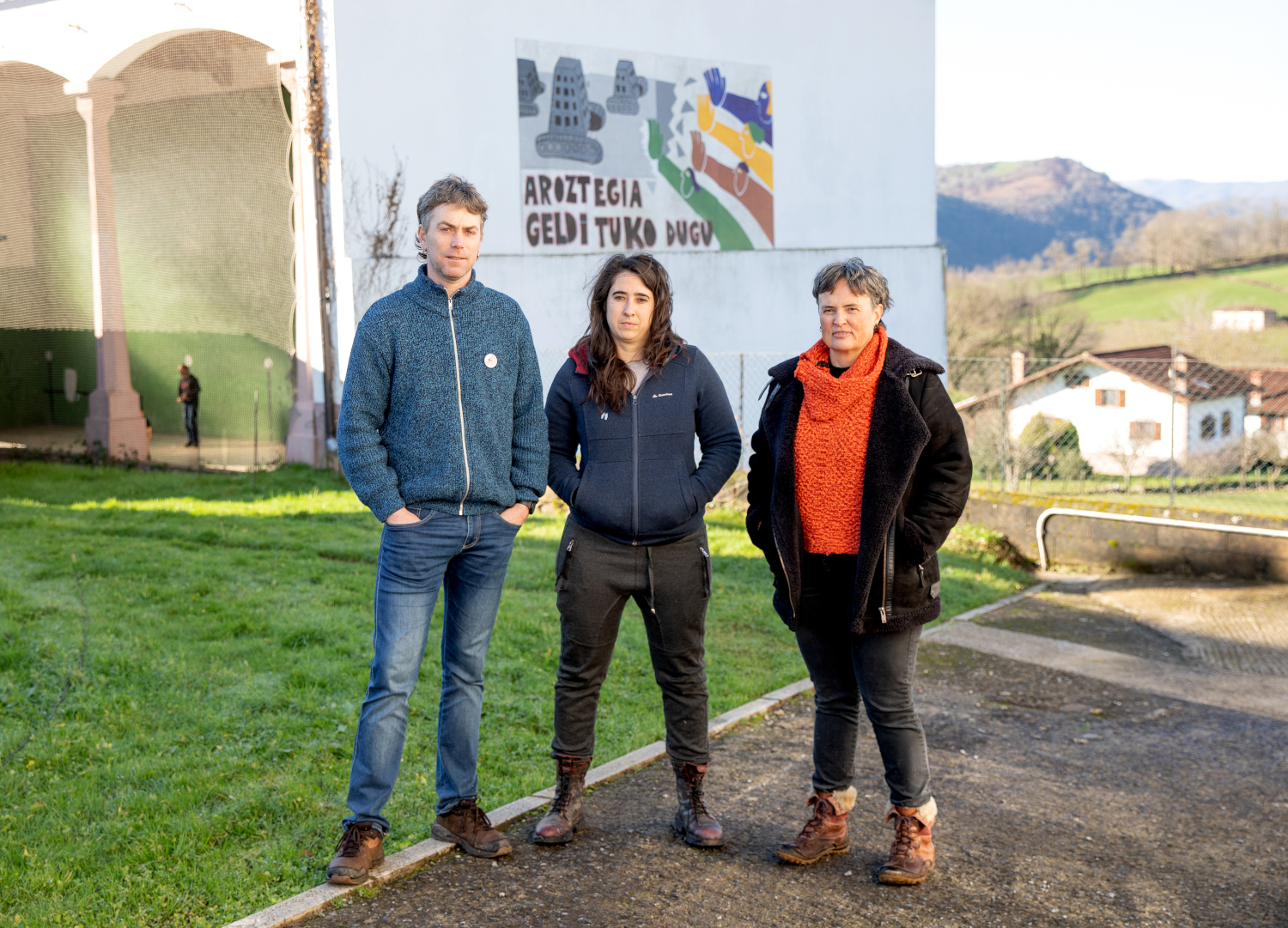
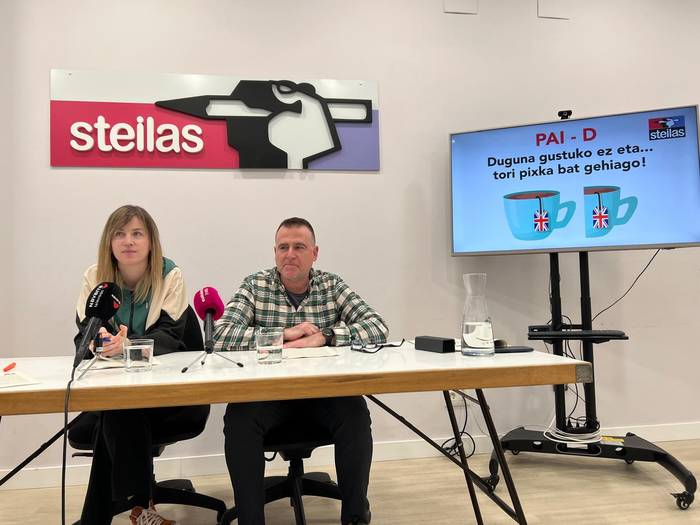
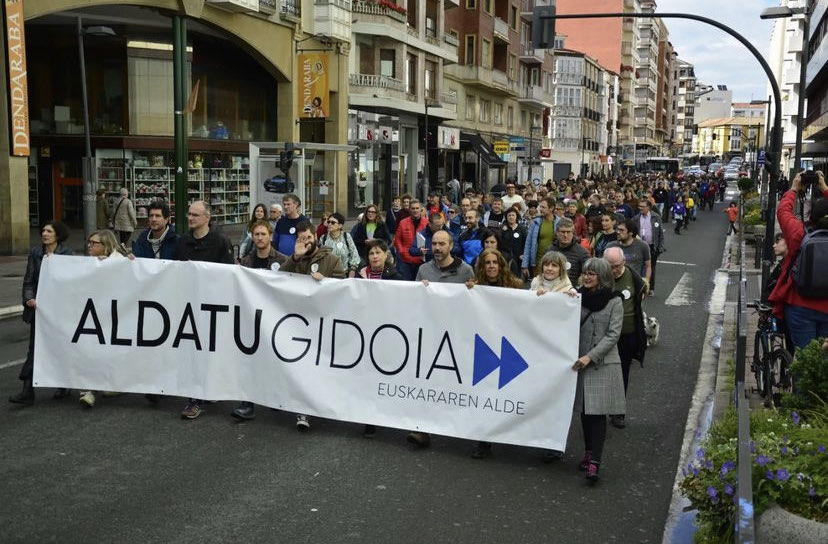

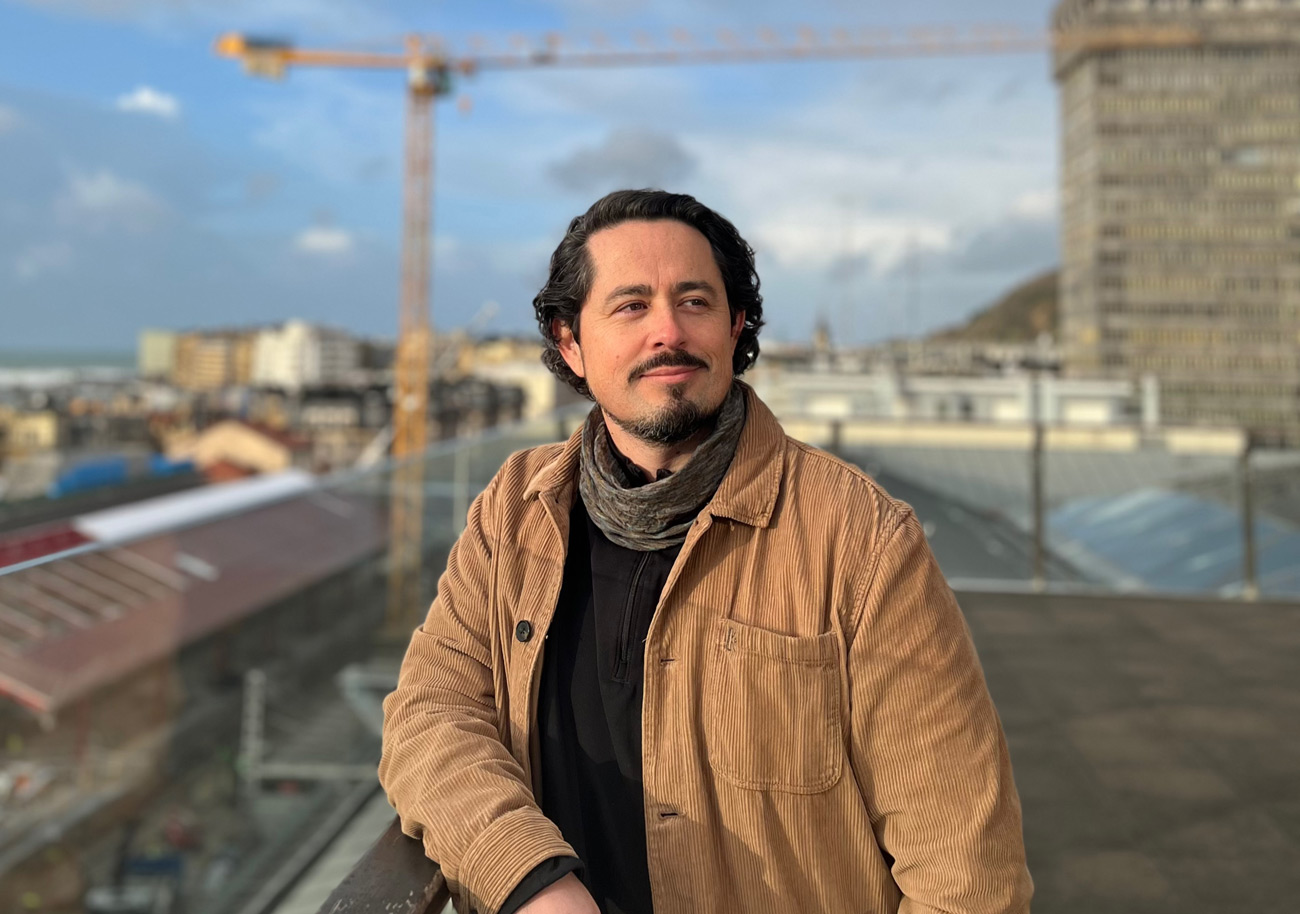
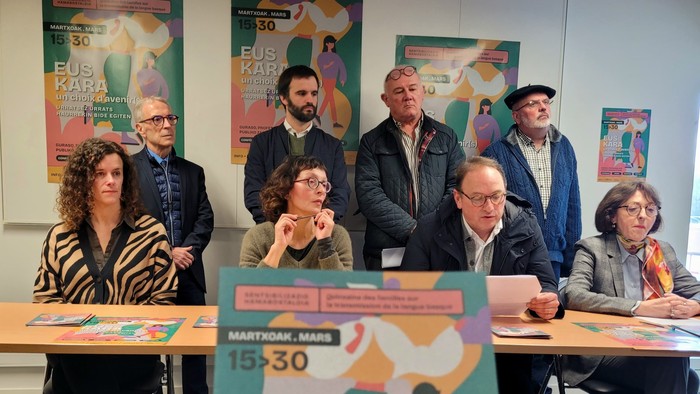
.jpg)
